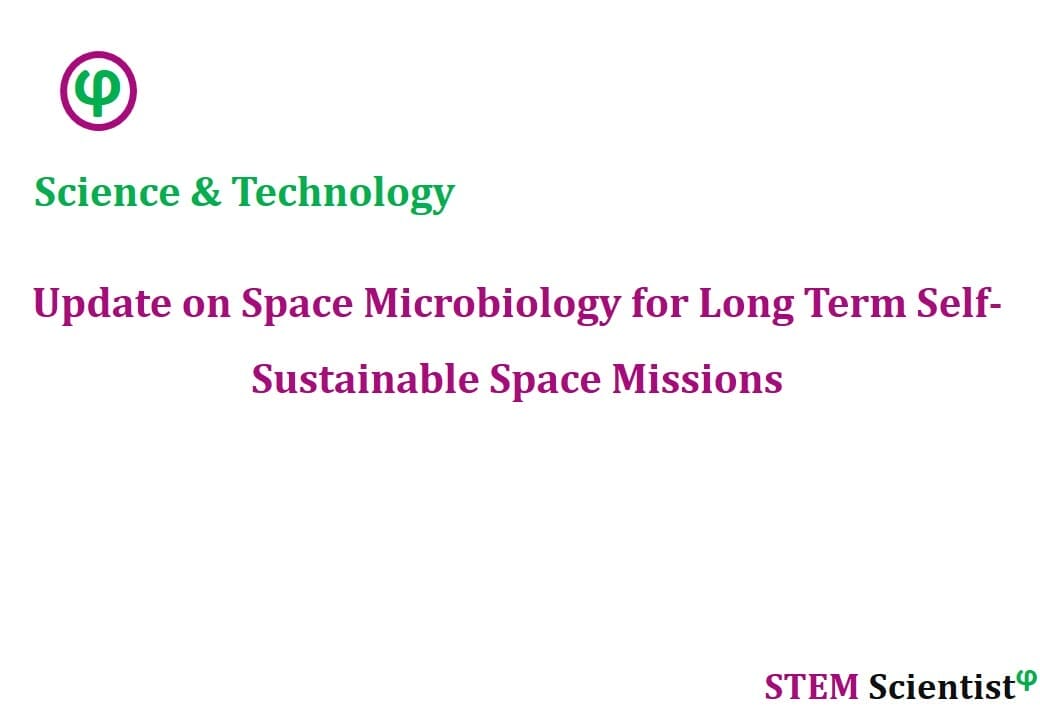
The following study was conducted by Scientists from City of Hope National Medical Center, Duarte, CA, USA; Department of Pharmacology and Pharmaceutical Sciences, School of Pharmacy, University of Southern California, Los Angeles, CA, USA; Department of Pharmacology and Pharmaceutical Sciences, School of Pharmacy, University of Southern California, Los Angeles, USA; Jet Propulsion Laboratory, California Institute of Technology, Pasadena, CA, USA. Study is published in iScience Journal – Cell Press Publishing as detailed below.
iScience Journal – Cell Press Publishing (2021)
Advances in Space Microbiology
Summary
Microbial research in space is being conducted for almost 50 years now. The closed system of the International Space Station (ISS) has acted as a microbial observatory for the past 10 years, conducting research on adaptation and survivability of microorganisms exposed to space conditions. This adaptation can be either beneficial or detrimental to crew members and spacecraft. Therefore, it becomes crucial to identify the impact of two primary stress conditions, namely, radiation and microgravity, on microbial life aboard the ISS. Elucidating the mechanistic basis of microbial adaptation to space conditions aids in the development of countermeasures against their potentially detrimental effects and allows us to harness their biotechnologically important properties. Several microbial processes have been studied, either in spaceflight or using devices that can simulate space conditions. However, at present, research is limited to only a few microorganisms, and extensive research on biotechnologically important microorganisms is required to make long-term space missions self-sustainable.
Source:
iScience Journal – Cell Press Publishing
URL: https://www.cell.com/iscience/fulltext/S2589-0042(21)00363-1
Citation:
Bijlani, S., Stephens, E., Singh, N.K., Venkateswaran, K., Wang, C.C.C., 2021. Advances in space microbiology. iScience 24(5).


